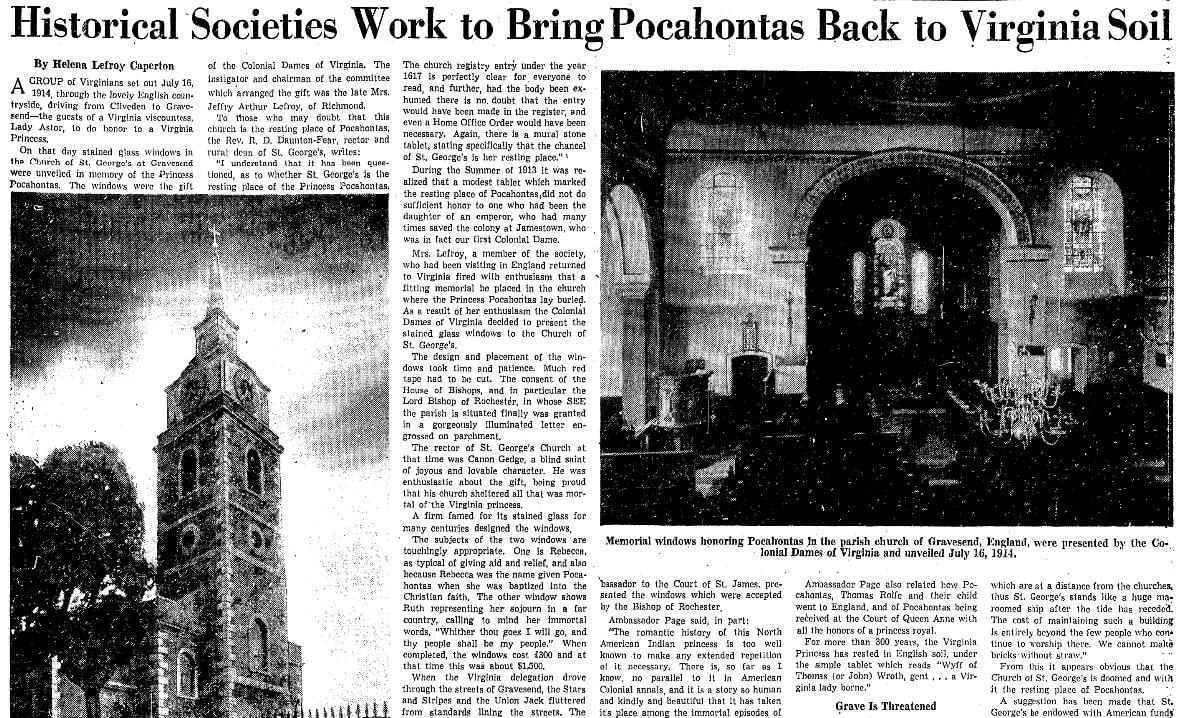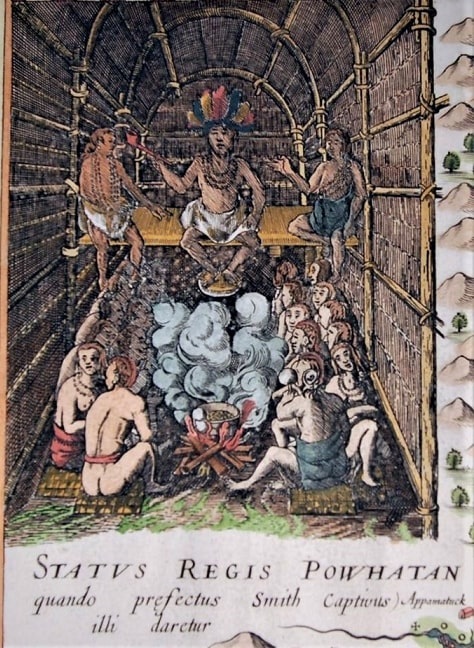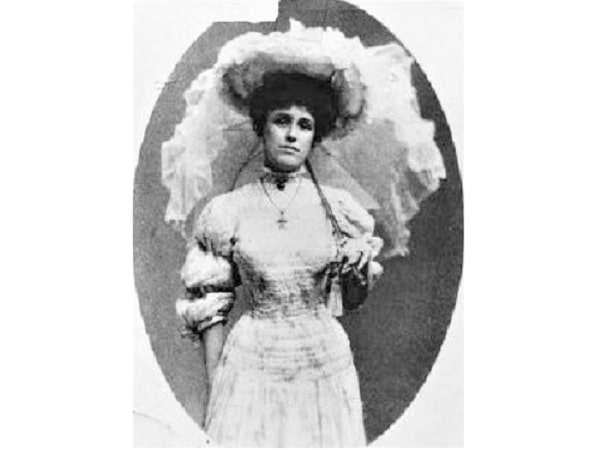Introduction: In this article, Melissa Davenport Berry continues her series on descendants of the Jamestown settlers, focusing on author and historical preservationist Helena Trench Lefroy Caperton. Melissa is a genealogist who has a blog, AnceStory Archives, and a Facebook group, New England Family Genealogy and History.
Today I continue with my “Jamestown Descendants: Who’s Who” series, focusing on the lineage of author and historical preservationist Helena Trench Lefroy Caperton (1878-1962), a descendant of Jamestown settler Peter Montague.
While I was searching for newspaper clips for my recent series of “Pocahontas Big Dig” stories (see links at the end of this article), I came across an article written by Helena published in the Richmond Times-Dispatch on 22 October 1950. This article is just one example of Helena’s deep passion to preserve the history of Virginia and her ancestors. She was also an active member of hereditary and historical preservation societies.

In this newspaper clip Helena recalls when a group of Virginians traveled to Gravesend, England, in 1914 to unveil two beautiful stained-glass windows in St. George’s Church. The windows were a memorial to Princess Pocahontas, a Native American from the Powhatan people who married John Rolfe of Jamestown, Virginia, traveled with him to England in 1616, and was buried in the parish church at Gravesend on 21 March 1617.
The windows were a gift from the Society of Colonial Dames of America in the state of Virginia. The committee organizer who made this possible was Helena’s mother, Mrs. Jeffrey Arthur Lefroy (born Sallie Watson Montague), daughter of John Henry Montague and Malinda Meredith Fox.

In the article, Helena noted how this came about:
During the Summer of 1913 it was realized that a modest tablet which marked the resting place of Pocahontas did not do sufficient honor to one who had been the daughter of an emperor, [Powhatan], who had many times saved the colony at Jamestown, who was in fact our first Colonial Dame.
Mrs. Lefroy, a member of the Society who had been visiting in England, returned to Virginia fired with enthusiasm that a fitting memorial be placed in the church where the Princess Pocahontas lay buried. As a result of her enthusiasm the Colonial Dames of Virginia decided to present the stained-glass windows to the Church of St. George’s… When completed, the windows cost £300 [over $44,000 today].
When the Colonial Dames were in England for the unveiling, they were the house guests of Lady Astor [Nancy Witcher Langhorne Shaw Astor], a Jamestown descendant.
In her article, Helena described the universal love displayed for Pocahontas, the warmth and fervor shown by both Brits and Americans:
When the Virginian delegation drove through the streets of Gravesend, the Stars and Stripes and the Union Jack fluttered from standards lining the streets. The crowds on the sidewalks welcomed us with cheers. Two battleships, one of the British Navy and one of our own, stood out in Gravesend Harbor. The latter gave the royal salute of 21 guns, four ruffles. The rail was manned by eight sideboys and our flag flew at full mast during salute. The bands played alternately our own national anthem, and God Save the King. Royalty was present.
An important presence at this ceremony was Walter Hines Page, the United States Ambassador to the Court of St. James, a direct descendant of Colonel John Page of Jamestown. Ambassador Page presented the windows which were accepted by the Bishop of Rochester.
More on Helena and her family:
Helena was born to Jeffry Arthur Lefroy and Sallie Watson Montague. She was a member of the Colonial Dames and Daughters of the Confederacy. She won awards for her writing and published books on the history of Virginia.
In 1897 at age 18 she married Clifford Randolph Caperton, son of William Gaston Caperton, Jr. and Rose Alexander Stiles. Clifford descends from Jamestown settler Thomas Hunt. They married at the home of her grandfather John Henry Montague in Richmond, Virginia.
Children born to Helena and Clifford:
- Arthur Lefroy Caperton married Martha Jesse Dora Voight
- Harietta Alexander Caperton married Charles Gordon Macgregor
- Sarah Montague Carpenter married Thomas Rederick Dew
- Rose Gaston Caperton married John Wilson Brown III
- Melinda Montague Caperton married Robert Nelson Page
- Mary Clifford Caperton married George Barry Bingham Sr.
- Helen Lefroy Caperton married William Lee Lyons Jr.
To be continued…
Note: An online collection of newspapers, such as GenealogyBank’s Historical Newspaper Archives, is not only a great way to learn about the lives of your ancestors – the old newspaper articles also help you understand American history and the times your ancestors lived in.
Note on the header image: a photo of Helena Trench Lefroy Capperton. Courtesy of Salle Bingham, a direct descendant.
Related Articles:
